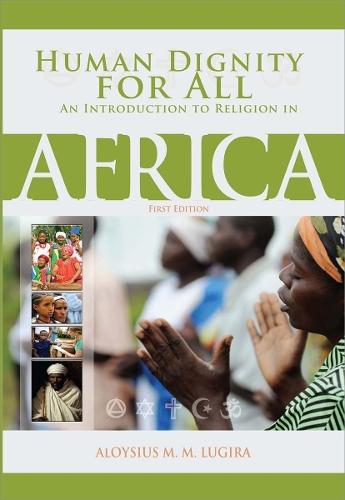Overview
Many books on religion in Africa address the topic from a descriptive, subjective perspective. Human Dignity for All: An Introduction to Religion in Africa, shifts this paradigm, and marks a substantive change in the field by using an observational and objective approach. The book examines the topic from the perspective of the realities of our time, while still giving students the background information needed to understand issues and information in context. Human Dignity for All addresses the four main religions of Africa. Part One addresses Africism, a term which refers to the autochthonic, or endemic, religions of Africa. The text examines numerous aspects of indigenous African religions, including the importance of Supreme Beings, Super Human Beings, and Extra-Human Beings, touching on the importance of magic, witchcraft, and sorcery. Part Two is devoted to Judaism, how it was introduced into Africa, and how it is now manifested differently in different areas of the African continent, including discussions of Judaism in Uganda, Kenya, and Zimbabwe. Part Three covers Christianity in Africa. This section of the book effectively compares and contrasts different eras in African Christian devotion, such as the Apostolic, Patristic, and Apostolate Ages. Part Four educates students on the role of Islam in Africa, beginning with an explanation of the Pillars of Islam, and moving on to discuss Islamic influence on community and jurisprudence, with special attention given to Shari'ah law. Finally, the book offers an appendix that provides numerical facts and figures about religion in Africa. This data moves the material covered in previous chapters from the purely observational to the concrete and measurable, and gives students a useful, statistical frame of reference for the various forms of religion in Africa today. Human Dignity for All gives students a comprehensive understanding of major world religions and their place in Africa, historically and in the modern world. The book is written for undergraduate courses in World Religion and Comparative Religion, but is also appropriate for Divinity studies. It can be used effectively in some graduate level courses.
Full Product Details
Author: Aloysius Lugira
Publisher: Cognella, Inc
Imprint: Cognella, Inc
Dimensions:
Width: 17.70cm
, Height: 1.00cm
, Length: 25.40cm
Weight: 0.525kg
ISBN: 9781621315544
ISBN 10: 1621315541
Pages: 186
Publication Date: 30 January 2013
Audience:
Professional and scholarly
,
Professional & Vocational
Format: Paperback
Publisher's Status: Active
Availability: Manufactured on demand

We will order this item for you from a manufactured on demand supplier.
Author Information
Aloysius Lugira earned his B.A. in Philosophy at Katigondo Major Seminary in Masaka, Uganda. He earned his M.A. and Ph.D. in Theology at the University of Fribourg in Switzerland; later performing post-doctoral work on Social Anthropology at Oxford University. He has taught at the University of East Africa, the University of California, Santa Cruz, Makerere University in Kampala, Uganda, and Harvard University. Dr. Lugira currently teaches as an Associate Professor at Boston College and has published ten previous books in the field of religion.




